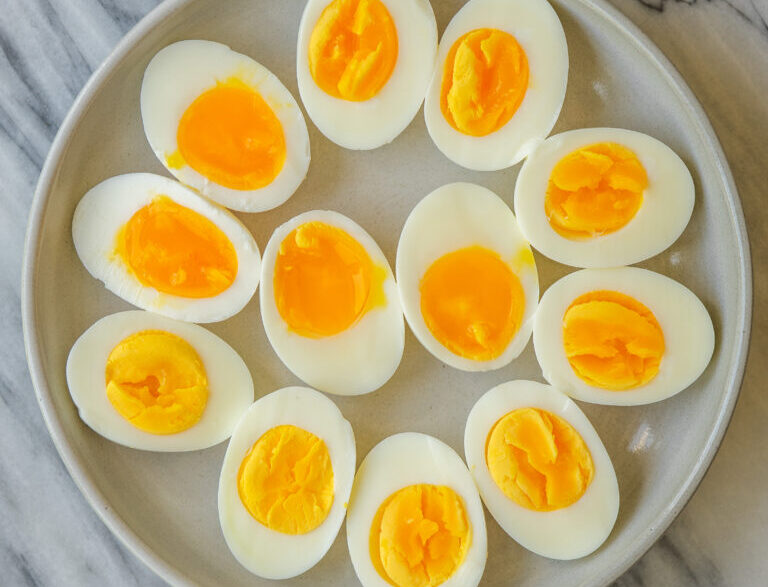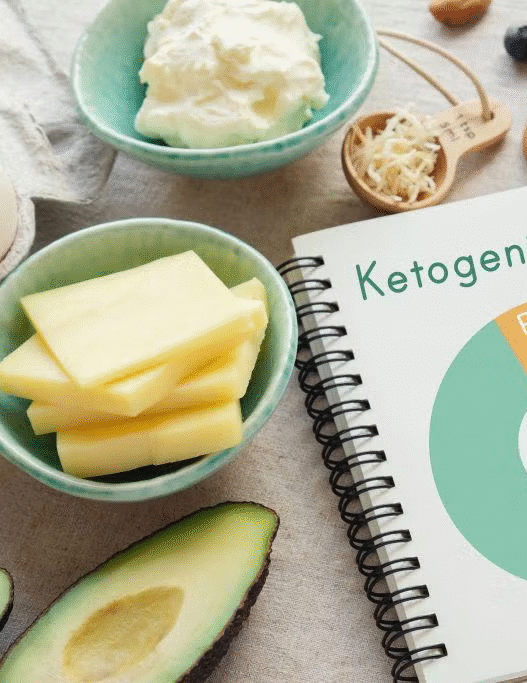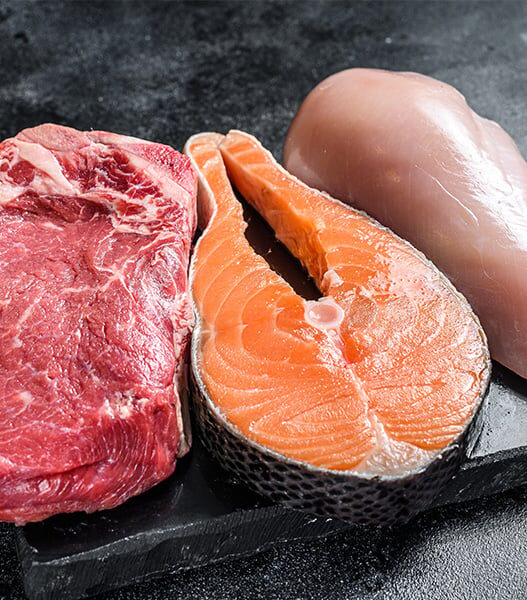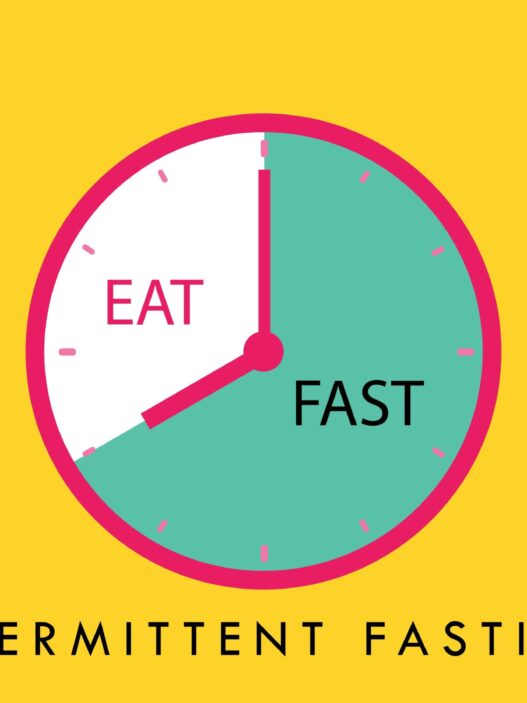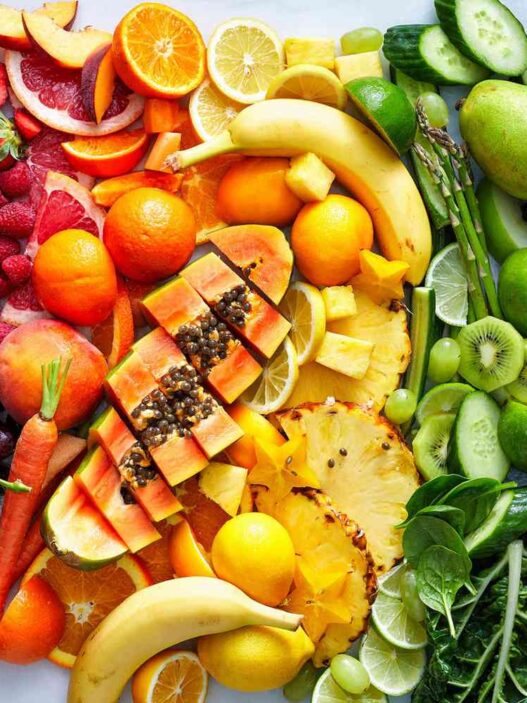The egg diet is a trend that has been popular for a while mow. Eating boiled eggs with low-carb vegetables, fruits, and sometimes lean protein is good for fast weight loss. But is it healthy over time and how effective is it? Let’s break it down.
Boiled Egg Diet
This diet is a low-calorie, low-carbohydrate, high-protein plan usually followed for 7 to 14 days. In addition to non-starchy vegetables, low-carb fruits, and occasionally lean proteins like chicken or fish, you will typically consume two to three boiled eggs per meal.
Why It Can Work – Short Term
1. Calorie And Carb Restriction
The low-carb diet creates a calorie deficit that results in a rapid initial weight loss, which is mainly due to the loss of glycogen and water rather than fat.
2. High Protein, High Satiety
Eggs are good for keeping you full and feeling satisfied. Each egg provides around 6 grams of high-quality protein.
3. Nutrient Density
In addition to vitamins A, B12, and D, eggs also contain choline, lutein, and zeaxanthin, all of which are beneficial to eye, brain, and general health.
What The Experts Say
- Healthline describes it as a “fad diet” that is not long-lasting because it is too restrictive and not supported by evidence for long-term results, despite the fact that it may help people lose weight quickly. (1)
- WebMD advised to consume boiled eggs 2-3 times a week. A boiled egg (about 77 calories) contains many nutrients but low calories. (2)
- According to a recent piece in Times of India, although boiled eggs help you fill up and provide energy, they aren’t as good as they sounds and only works best when eaten with other foods as part of a proper diet. (3)
- NDTV states that such a diet may induce weight loss, however, it may be temporary and not suit everyone long-term. (4)
Benefits Of The Boiled Egg
| Benefits | Description |
| Rapid weight loss | Created by calorie and carb restriction |
| Protein-packed | Provides satiety and lean muscle preservation |
| Convenient & affordable | Easy to prepare and budget-friendly |
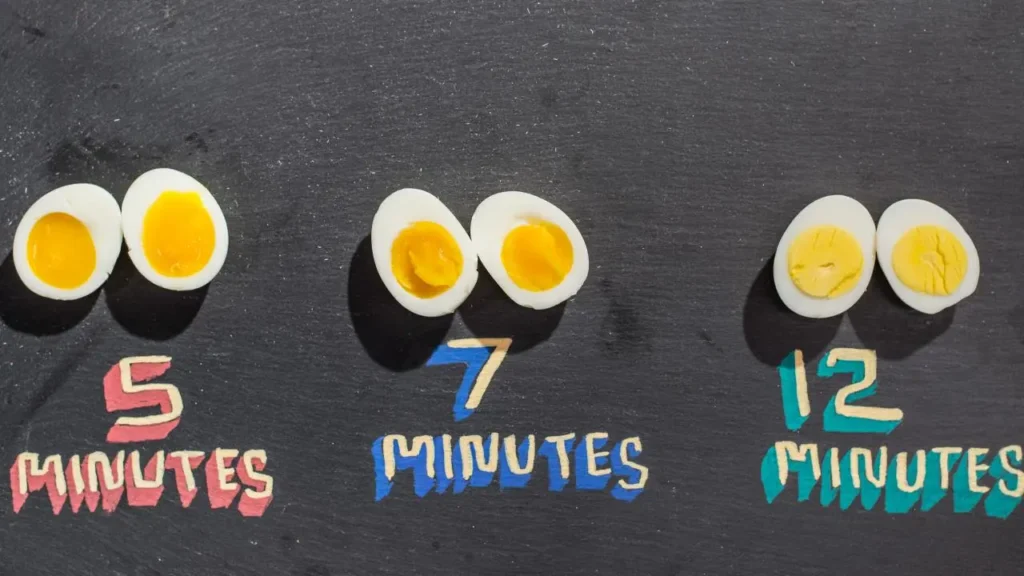
Drawbacks And Risks
- Very Restrictive – Exempt whole grains, many fruits, mushy vegetables – raising the risk of nutrient deficiencies.
- The diet is designed for short-term adherence; most people gain weight after returning to their regular dietary pattern.
- A yolk’s high cholesterol level – makes it an issue despite its nutritional value.
- Food Safety – Inadequately cooked or stored eggs cause foodborne disease such as salmonella – boiling at ≥ 74 °C is essential for safety.
- Missed Nutrients – Insufficient fiber, healthy fats, and complex carbohydrates can damage digestion, energy levels, and overall nutrition if prolonged beyond 2 weeks.

Healthier And Sustainable Alternatives
Instead of extreme elimination, consider adding eggs into an unprocessed, whole-food diet:
- Consume eggs as part of Mediterranean-style meals with vegetables, whole grains, nuts, seeds, and fish.
- Mix eggs with high-fiber breakfasts such as oatmeal to enjoy from both high protein and beneficial gut-healthy fiber.
- Restrict egg consumption to approximately 1 per day or up to 7 per week, which research demonstrates can be safely included in a heart-healthy diet without adding risk – and could even aid weight and heart health.
Does It Really Work?
- Yes, in the short-term, the boiled egg diet can lead to weight loss because of calorie restriction and high satiety.
- No, Sustainable health and weight management are not promoted in the book.
- To lose weight in a healthy way, prioritize balanced nutrition, exercise, sleep, and consistency. Let eggs be part of a varied, nutrient-rich plan – not your entire diet.
Frequently Asked Questions (FAQ’s)
Q1: How much weight can I lose on the boiled egg diet?
Often 5-10 pounds in two weeks – but much of it is water weight, not fat.
Q2: Are eggs safe to eat everyday?
Yes, for the majority of healthy people, but if you have heart disease or high cholesterol, see your doctor.
Q3: Do I just consume the egg whites, or do I also eat the yolks?
Vitamin D, choline, and antioxidants are just a few of the vital nutrients found in egg yolks. Protein is found in egg whites, but fat is not. Unless there are calorie or fat restrictions, whole eggs are the best for overall health.
Q4: What is the food safety when boiling eggs?
To prevent harmful bacteria, be sure to boil eggs to a temperature of at least 74 °C.
Q5: What would be a better rounded alternative?
Incorporate eggs with lean protein sources, healthy fats, fruits, vegetables, and whole grains. For a complete and nutritious dinner, try breakfast pairings like eggs with oatmeal, vegetables, or avocado toast.
Final Thoughts
The egg diet may give a short-term boost to weight loss, but it does not work long term. Eggs are very healthy, but to depend on them alone is neither a feasible nor a complete idea nutritionally. If you wish to lose weight and maintain it, look to a healthy lifestyle – have eggs as a healthy mainstay, not the entire regime.







